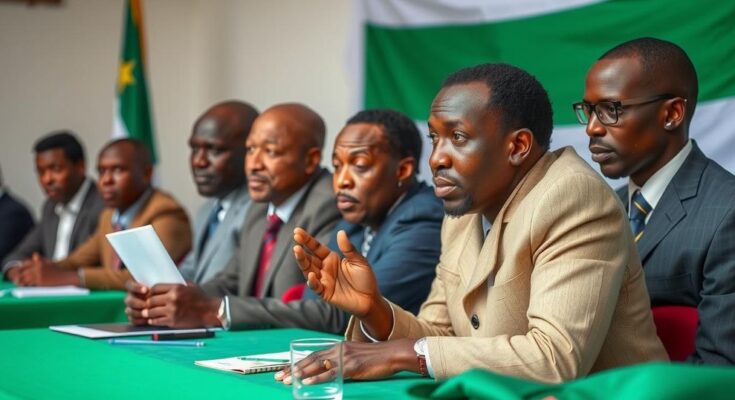On Sunday, Comoros held a parliamentary election that faced a boycott from some opposition parties citing concerns over authoritarianism and electoral integrity. Approximately 330,000 citizens were eligible to vote in an election expected to yield results next week. The political landscape remains fraught with accusations of fraud and repression associated with President Azali Assoumani.
Comoros conducted a parliamentary election on Sunday, amidst a boycott declared by several opposition factions. These parties accused President Azali Assoumani and his ruling party of demonstrating increasing authoritarianism and questioned the electoral integrity. The election is intended to fill 33 legislative seats, with results anticipated next week. Despite a registered voter base of approximately 330,000 from an overall population of 850,000, opposition groups foresee a low voter turnout due to widespread disillusionment with the democratic process. The last parliamentary election saw Assoumani’s Convention for the Renewal of the Comoros secure 20 of the 24 contested seats, which the opposition characterized as a “masquerade.” Previously, Assoumani had won a five-year presidential term in what was also deemed a fraudulent election, which incited violent protests. Opposition leader Ahmed Abdallah Sambi’s Juwa Party was among those choosing not to participate in this election. Historically, Comoros has experienced numerous military coups since its 1975 independence from France. Assoumani, a former military leader, first assumed power in 1999, has held the presidency since winning successive elections despite amendments to the constitution that removed term limits. Amidst such political strife, officials confirmed that voting would proceed despite the threat posed by Tropical Cyclone Dikeledi, which was approaching the region.
The Comoros archipelago, situated off the east African coast near Madagascar, has endured political instability characterized by military coups since its independence from France in 1975. The legitimacy of elections has been a contentious issue, particularly under President Azali Assoumani, who has been accused of suppressing political dissent and undermining democratic processes. In 2018, constitutional changes allowed Assoumani to circumvent presidential term limits, further intensifying opposition discontent. The current election occurs against a backdrop of both a history of contested electoral practices and critical humanitarian situations, such as the threat posed by regional tropical cyclones, heightening the tension and scrutiny surrounding the election.
The parliamentary election in Comoros, marked by an opposition boycott and allegations of authoritarianism against President Azali Assoumani, highlights the ongoing political turmoil in the archipelago. With significant concerns regarding the electoral integrity and predictions of low voter turnout, the outcome of this election will further influence the democratic landscape of Comoros. The context of past fraudulent elections and heightened political repression casts a long shadow over the electoral process while the nation contends with environmental challengers like Tropical Cyclone Dikeledi.
Original Source: abcnews.go.com




